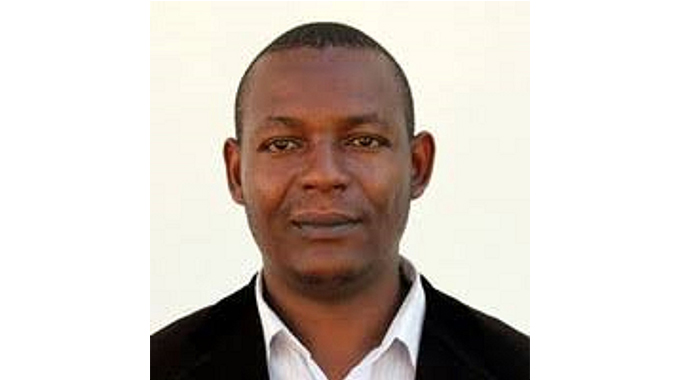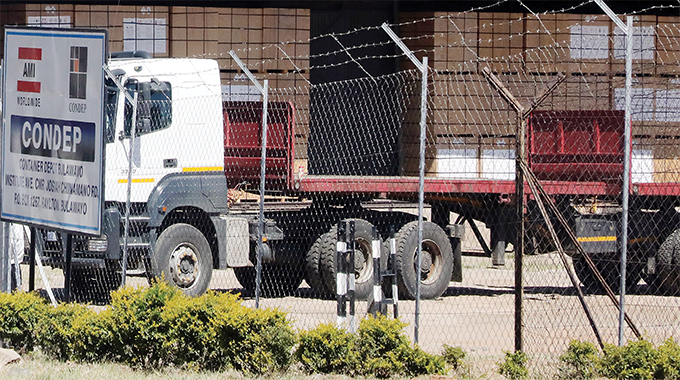Covid-19: Members of media are also frontliners

Gibson Mhaka, Senior Features Reporter
ON Sunday Zimbabwe joined the rest of the world in commemorating the World Press Freedom Day with the Covid-19 lockdown forcing many journalists and media workers to use various social media platforms to mark the day.
World Press Freedom Day is commemorated globally on May 3 to enable journalists, civil society representatives, national authorities, academics and the broader public to discuss emerging challenges to press freedom and journalists’ safety, and to work together on identifying solutions.
The global theme for this year’s commemoration was “Journalism without fear or favour.”
The theme emphasises the need to ensure that media practitioners are protected by the law, for them to execute their duties professionally and ethically without being subordinate to some ulterior agendas or being captured. With this protection they can act without fear of any repercussions and meaningfully fulfil their constitutional mandate.
Sadly, the day came weeks after a prominent broadcaster, Zororo Makamba became the first person to die of Covid-19 in the country. He was also Zimbabwe’s second reported positive Covid-19 patient.
As the indispensable role of the press is being confirmed on a daily basis during the current Covid-19 crisis, like other less-heralded heroes in the fight against Covid-19, journalists and media workers must be given full protection by their employers and the Government by ensuring their health and safety in their workplaces, proper compensation, job security and press freedom at all costs.
It is important to note that members of the media are also frontliners, who need to be safeguarded from the deadly virus which has already claimed tens of thousands of lives across the globe.
They should as well be saluted for risking their lives on the frontline to deliver fresh and vital news, information and public service in time of the Covid-19 pandemic when many fake remedies and cures have surfaced, along with incorrect information shared via different social media platforms. It is, without doubt, that false news is a threat to public health.
Commenting on the age of misinformation in the wake of Covid-19, UN Secretary-General António Guterres said as the pandemic spreads, it has also given rise to a second pandemic of misinformation, from harmful health advice to wild conspiracy theories.
From his observation, it is important to note that this quick spread of information which has also been spreading as fast as the virus itself, highlights the importance of media practitioners as frontliners supporters against this crisis.
The media bears the responsibility of searching for truth and delivering it to the public.
In respect to that, journalists are working tirelessly to keep the communities they serve updated with verified information and fact-based news and analyses that help them make sense of the pandemic.
In her World Press Freedom Day message, Information, Publicity and Broadcasting Services Minister Monica Mutsvangwa also acknowledged the critical role being played by the media in the face of the deadly Covid-19 saying it provides the public with important information which informs decision-making.
Minister Mutsvangwa also implored media practitioners to practise quality and professional journalism to defeat fake news.
“On their part, journalists have to improve on the standards of the profession,” she said. “Report in an informative and analytical way. Avoid the temptation of tabloid sensationalism. This is why my Ministry with cooperating partners carried out a number of training workshops for journalists to improve on their Covid-19 reporting skills.
“Government has adopted stringent policies against the spread of false information and it is our belief that the measures put in place provide good grounds for credible journalism to thrive.”
A few weeks ago, President Mnangagwa cautioned people against peddling falsehoods regarding the coronavirus pandemic on social media, saying they could face punishment of up to 20 years in jail for doing so.
Additionally, Minister Mutsvangwa said in her message that media practitioners should be allowed to operate in a democratic and conducive environment.
“Democracy is now universally acceptable as the standard and ideal form of governance,” she said. “To realise democratic rule and fulfil its ethos, the people need to be informed. That is why World Press Freedom Day is so vital as the life-blood of the democratic rule.
“Reporters and journalists are the agents of searching, processing and spreading information to the general public. It is, therefore, important that their ability to carry out this task is not tampered with. They must be given the space so that they can speak truths. Safety of their working environment is very crucial.”
Her passionate plea for journalists to be allowed to operate in a democratic environment follows some reports of abuse and maltreatment of journalists while executing their professional duties.
“The threats of death, imprisonment of reporters and journalists has no place in civilised societies. It is also important to ensure that press workers’ welfare is improved through provision of decent working conditions and life rewarding salaries,” she said.
Since the fight against Covid-19 is a collective fight which governments alone cannot win in secrecy, hampering media freedom in the face of a deadly disease should not be condoned.
It is crucial that governments preserve a free and enabling environment for journalists and media workers and ensure that they can report on Covid-19 and inform about responses and consequences without undue interference.
This is because journalists like other frontliners, as they try to sustain their operations in the face of this unprecedented global public health emergency, are risking not only their freedom but their lives on the front line.
Despite the seemingly insurmountable challenges they are facing, their work is most needed and as a result they still go to work while some gather information from home.
It is also worth noting that, while the virus has sparked unprecedented interest and demand for news, it is also negatively impacting on the already struggling media industry.
Moreover, media employers must also play their part by providing personal protective equipment to journalists and other media workers in the field.
As we continue celebrating the World Press Freedom Day, rights groups who are warning that Covid-19 must not be a pathogen of repression, should also be sternly reminded that managing information is also necessary to combat the disease.








Comments